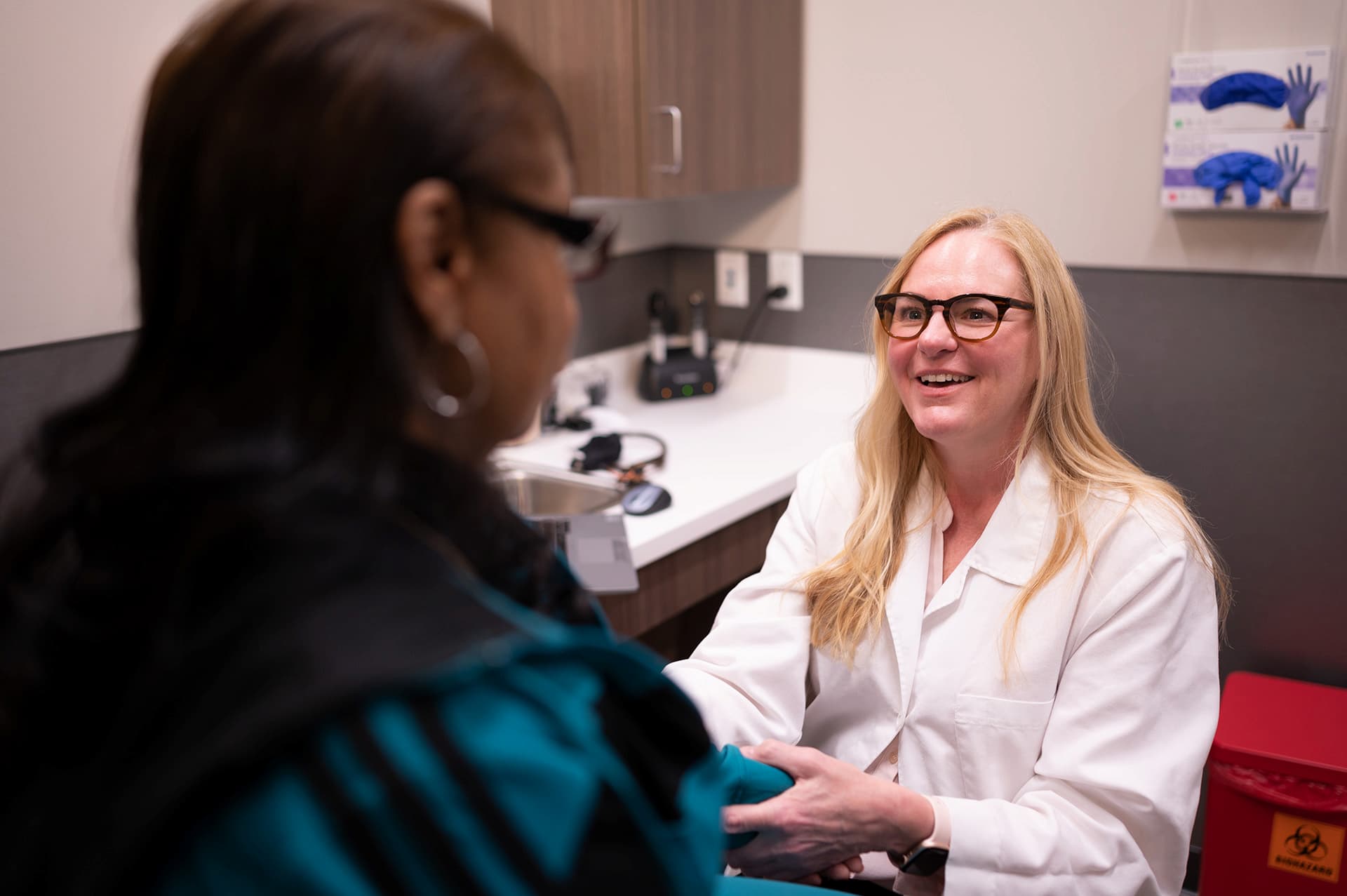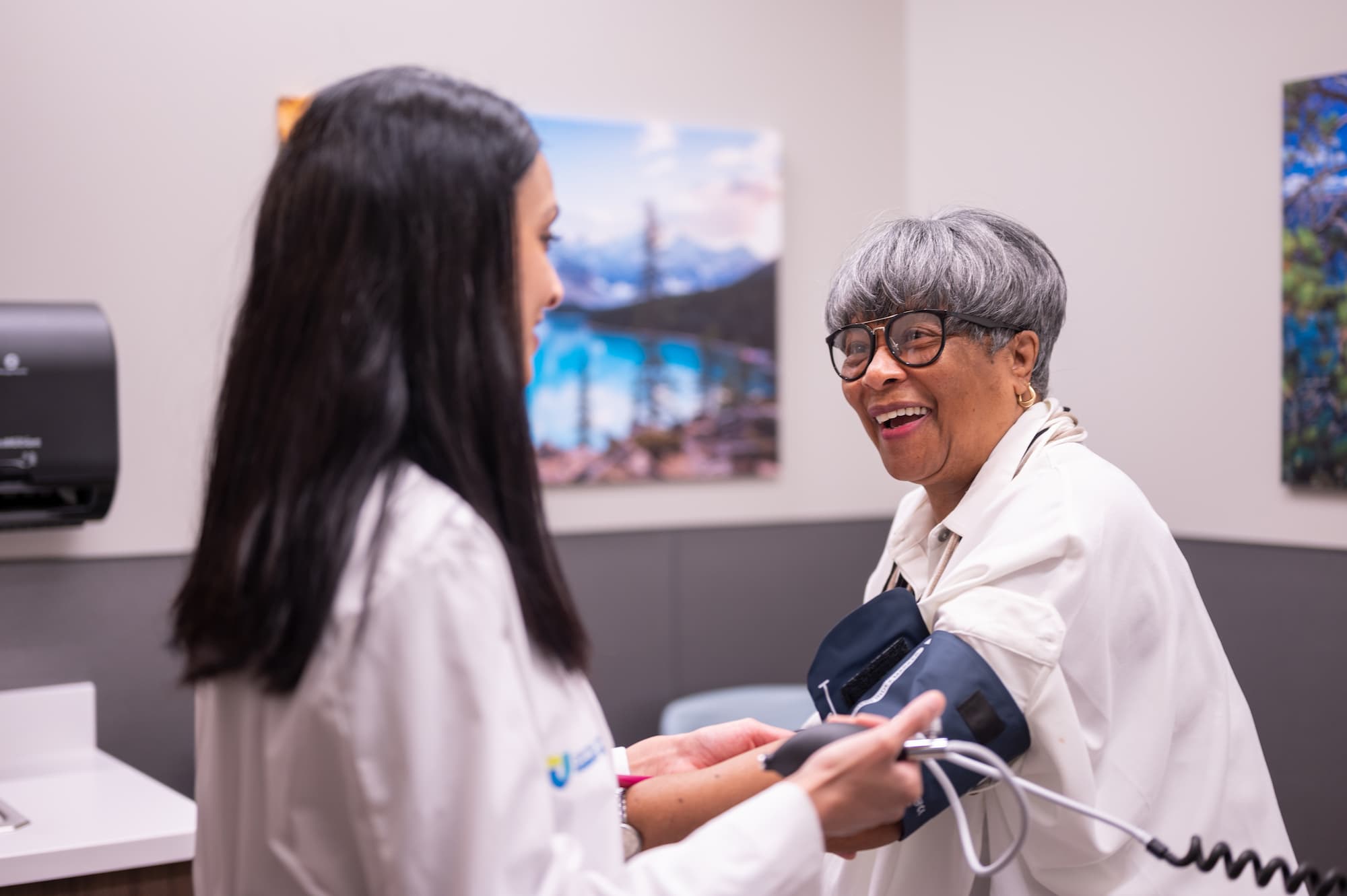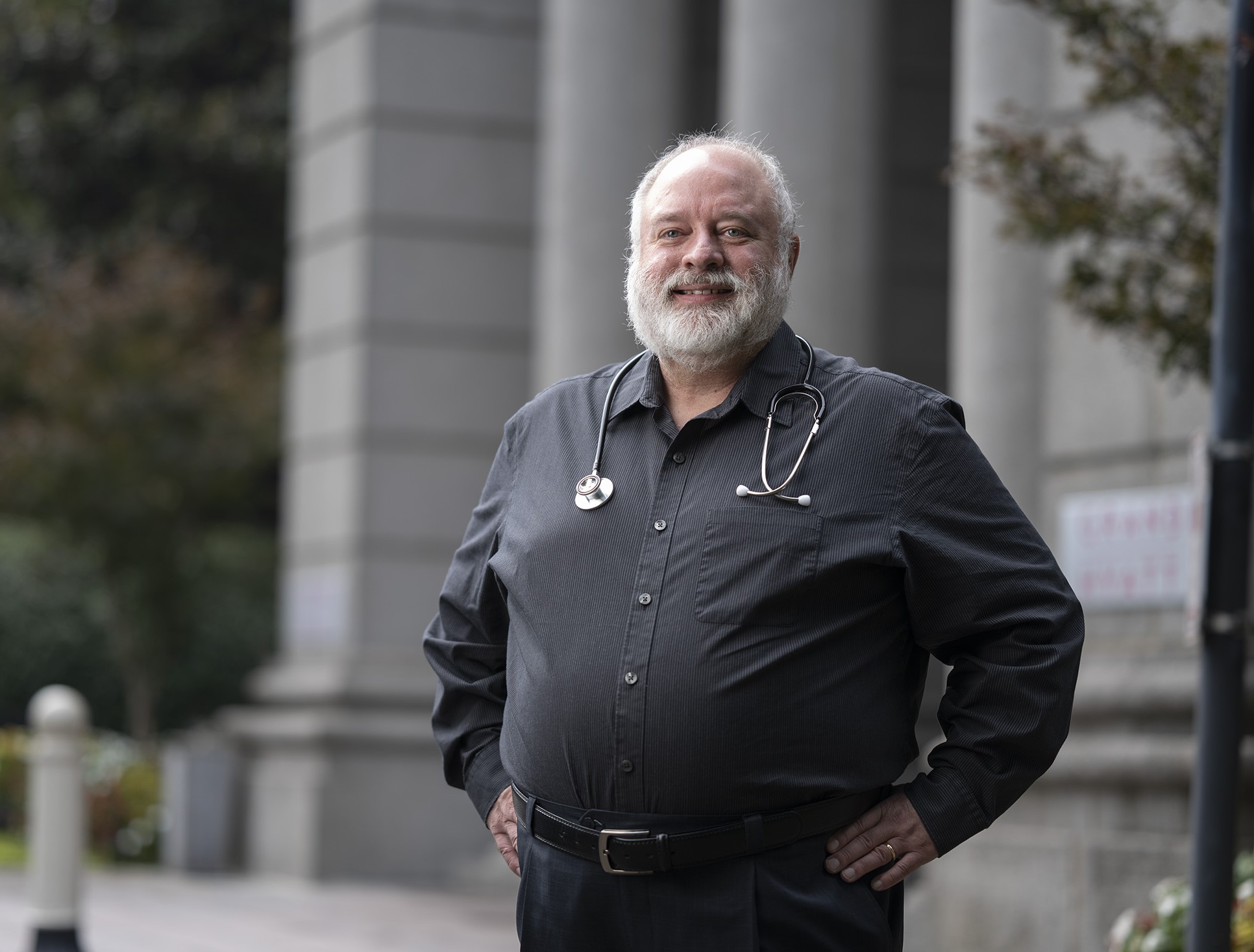One in ten. That is how many Americans live with diabetes today. If you know ten people, you know somebody living with diabetes. For Americans over the age of 65, that number shrinks to one in four.
Diabetes is so common that it is easy to overlook its devastating impact. A diagnosis of diabetes can mean a lifelong reliance on expensive interventions, a two-fold increase in the likelihood of heart attack or stroke, the potential for vision loss or limb amputation, and the list continues.
These impacts affect patients, most obviously, but they extend to family members, loved ones, the broader healthcare system and communities.
For patients, living with diabetes often means more time and money spent on healthcare, and less on family, travel, and other personal pleasures. In addition to the serious physical complications arising from uncontrolled diabetes, the heavy burdens of care leads to high rates of depression and emotional distress. For family members and loved ones, it may mean taking a step back from work and other commitments to assume the role of caretaker. For communities and the wider healthcare system, it means more of our limited healthcare resources going to high cost, avoidable complications and fewer resources devoted to promoting preventive care and overall wellness.
The bad news: if current trends persist, the number of Americans living with diabetes is expected to increase to nearly 55 million by 2030. That is one in every six people.
Unfortunately, in our current Fee-for-Service healthcare system, many patients with diabetes, particularly the most vulnerable and those from Medically Underserved Areas (MUAs), often fall through the cracks and bear the brunt of this debilitating diagnosis. But, there is room for optimism. Indeed, the worst complications of diabetes are highly preventable with better medical management.
At agilon, we believe there is a better way by re-orienting healthcare around empowered primary care physicians. The data seem to agree.
In a research paper examining the impact of agilon’s value-based Total Care model on outcomes for patients with diabetes, we found that seniors with diabetes cared for by agilon partner physicians are seeing higher rates of diabetes control compared to other Medicare Advantage patients and those in the traditional, FFS model.
Specifically, from 2020 to 2021, the data show that patients in the agilon model saw a rate of improvement in glucose control that was 2.1 times better compared to all of Medicare Advantage. Compared to patients in CPC+ practices (considered the most advanced primary care practices in Medicare FFS), patients in the agilon model saw a rate of improvement in glucose control that was 3.8 times greater.
Why does glucose control matter? Because uncontrolled glucose is responsible for nearly all the adverse outcomes associated with diabetes, including vision loss, limb amputation, stroke and heart attack, the need for dialysis, and other serious complications.
Indeed, the data confirm that Medicare Advantage patients in the agilon model with consistent glucose control had fewer avoidable hospital admissions, lower costs, and fewer interventions compared to patients without consistent control.
The data also show that patients with diabetes in the agilon model living in MUAs saw these same, or better, outcomes compared to those who live in other areas. As a company, we are deeply committed to health equity, and to see that our model is helping to advance such an important cause is a point of profound pride.
Taken together, all of this means better outcomes for patients, more satisfied physicians, and healthier communities. It means grandparents spending more time with their grandchildren. It means more money to spend on groceries or gas – which is particularly important for seniors living on a fixed income during a time of record inflation. It means less time tethered to a dialysis chair.
It also means that agilon’s partner physicians are effectively transforming healthcare. Together, we are crafting an approach to manage chronic diseases that has implications far beyond diabetes, extending to the whole healthcare system. If we can have this level of impact on diabetes, imagine what we can do for heart disease, obesity, and even cancer.
Our healthcare system has a long way to go in the coming years if it is going to rise to the challenge of an aging population with more complex and chronic medical needs. This research paper provides compelling evidence that agilon and our partner physicians are answering the call.
Read the full agilon diabetes analysis here:
Contact for media enquiries
[email protected]Up Next.

Blog Feb 01, 2023
Female Physician Burnout: Gender Differences
Learn how gender differences affect physician burnout.





